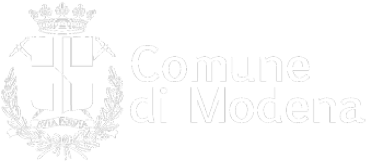Mirandola
Mirandola is the birthplace of the Pico family and of Giovanni Pico (also known as Pico della Mirandola), the 15th-century Italian philosopher and humanist. Today, Mirandola is home to Italy’s most important biomedical companies and is also a center for the cultivation of melons and watermelons.
One interesting feature of Mirandola’s history concerns the legend of the creation of zampone (a dish made from a mixture of ground pork flavored with herbs and spices and stuffed into the hollowed-out lower-leg of a pig). As the story has it, during a siege by the army of Pope Julius II in 1511, the town’s residents butchered all their hogs to ensure they would not fall into the hands of the invaders. They stuffed the meat into a trotter to ensure its preservation.
Mirandola was near the epicenter of the 2012 earthquake. At the moment, the Pico Castle, the Palazzo Comunale, the Oratorio of the Santissimo Sacramento, the Church of St. Francis, and the Oratorio of the Beata Vergine della Porta are closed for post-earthquake repairs.
Why it's worth a trip
Mirandola’s old town, its castle, and some of its churches were seriously damaged during the earthquake, but along the area’s streets are signs of the restauration and reconstruction projects that are gradually bringing the city back to normal. The Church of Santa Maria Maggiore, the town’s main cathedral, has already been reopened to the public.
Mirandola, like all of the northern part of Modena Province, is also a perfect destination for cyclists and bicycle tourists as well as being a great place to taste Emilia’s traditional cuisine.
Sites you won't want to miss
The Church of Santa Maria Maggiore (the Cathedral of Mirandola)
Built in late Gothic style in the 15th century by the lords of Mirandola, Santa Maria Maggiore was restored and reopened to the public in 2019.
Biomedical Museum. MOBIMED is a permanent exhibition of biomedical products produced in Mirandola. It opened in May 2010 in the spectacular interior of the Pico Castle.
The aim of the exhibition is to preserve and promote the history and creative strengths of Mirandola’s biomedical industry and to introduce national and international visitors, as well as students of all ages, to the economic significance of this important sector. Following the earthquake, which left the Pico Castle closed to visitors, the exhibition was reopened in May 2013 in a new site at Via O. Focherini 17.
Good things to eat
In addition to products representative of the Modena area, including Modena’s traditional PDO (protected designation of origin) balsamic vinegar, its PGI (protected geographical indication) balsamic vinegar, its PDO Parmigiano-Reggiano cheese, varieties of sparkling red lambrusco wine, zampone and cotechino (dishes made from a mixture of ground pork flavored with herbs and spices and stuffed into the hollowed-out trotter or lower-leg of a hog), and such traditional offerings as fresh egg pasta, San Felice Salame also comes from this area. This variety of cured meat is known for its delicious aroma and characteristic sweetness, both of which are the result of the use of selected cuts of pork obtained exclusively from local hog farms. Its intense ruby-red color and soft texture come from red wine—always a lambrusco—added during its preparation. San Felice Salame is produced and packaged exclusively in the towns and villages of Camposanto, Cavezzo, Concordia sulla Secchia, Finale Emilia, Medolla, Mirandola, San Felice sul Panaro, San Possidonio, and San Prospero in Modena Province.
One of the most important examples of local cuisine is Maccherone al Pettine. This delicious pasta dish can be sampled at the many area restaurants that specialize in traditional cooking as well as during the local fairs and events that take place between May and December in Gavello, Mortizzuolo, San Martino Spino, San Giacomo Roncole, Quarantoli, and Mirandola itself. Watermelons and other varieties of melon are common on summertime tables in northern Modena Province and are the main attraction at area fairs and festivals.
Nearby
By Bike
A number of bicycle paths pass through Mirandola. The bikeway between Mirandola and Finale Emilia, for example, is a perfect example of the reclamation of an abandoned railway. The bike path’s thirty kilometers begin in Mirandola’s old town and follow the 19th-century train route that once crossed the local countryside. The bikeway, most of which passes through open fields and farmlands and far away from traffic, is easy for all skill levels and ideal for families.
The Mirandolesi Valleys are a specially protected area and a haven for birdwatchers. Many tourist services are available in the area, and the protected zone offers opportunities to view rare species in their natural context.
The Mirandolesi Valleys area also offers a chance to visit the distinctive “Old Barchessone” (the “barcsòn vècc” in the dialect of Mirandola), an unusual, sixteen-sided historic building, originally used as a horse station, located in the countryside just south of the village of San Martino Spino.
The Pettazzurro Bird Observatory (Stazione Ornitologica Modenese)
The Pettazzurro Bird Observatory of Modena, on Via Montirone in Mortizzuolo di Mirandola, is managed by knowledgeable volunteers who track bird migration. As of the most recent count, the area’s biodiversity included 312 species of birds.








